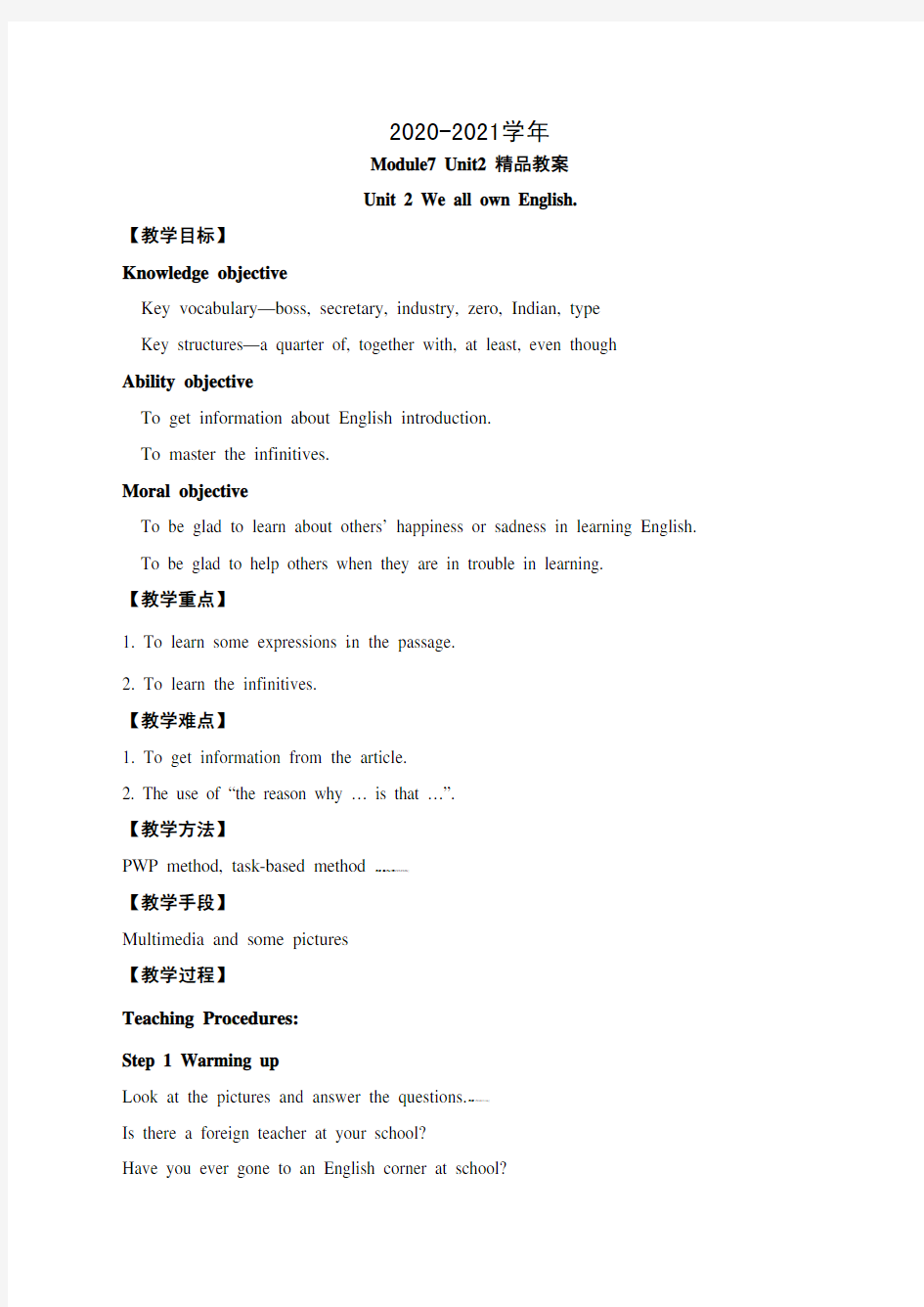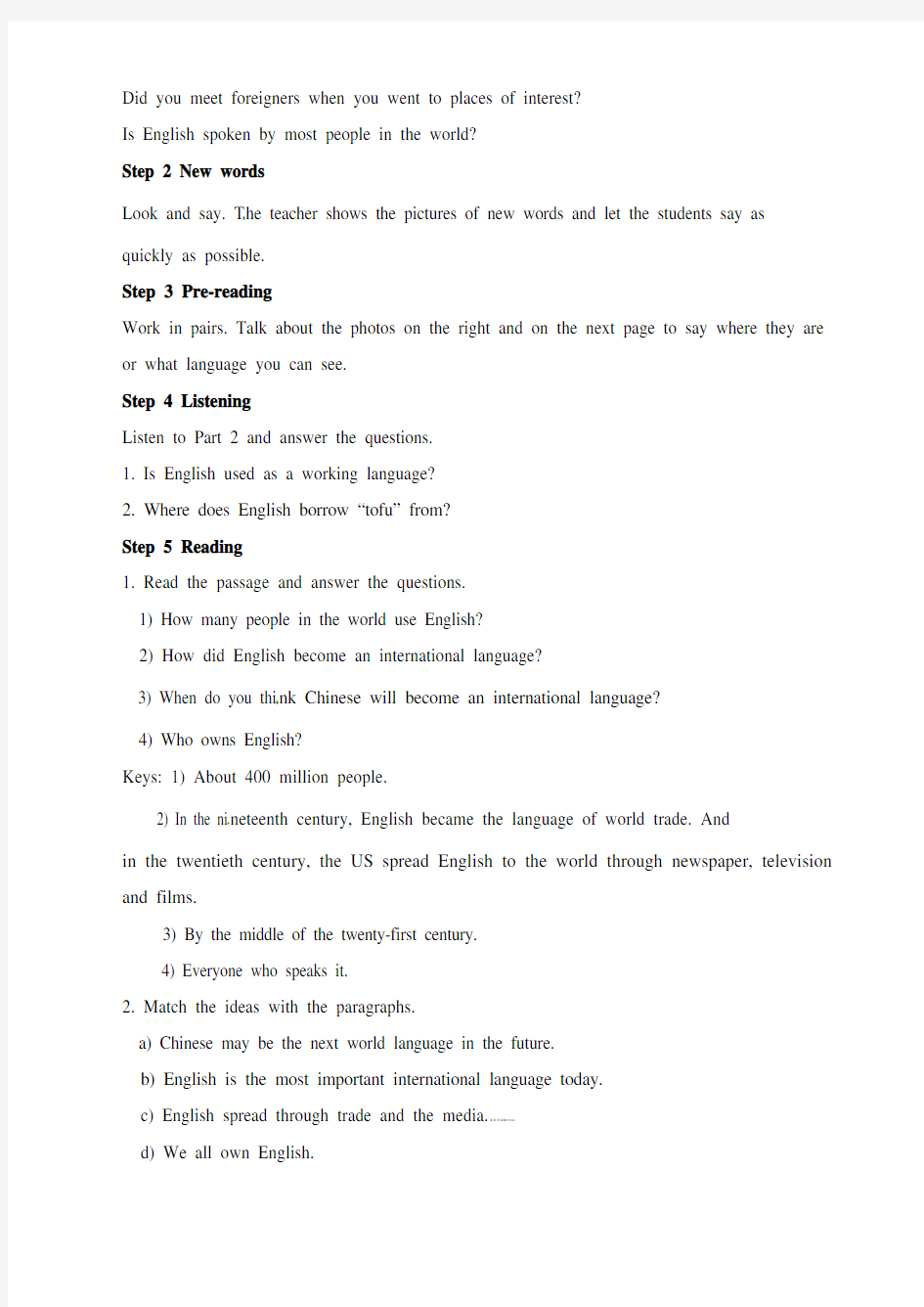英语四级.Module.7.Unit.2.教案


2020-2021学年
Module7 Unit2 精品教案
Unit 2 We all own English.
【教学目标】
Knowledge objective
Key vocabulary—boss, secretary, industry, zero, Indian, type
Key structures—a quarter of, together with, at least, even though
Ability objective
To get information about English introduction.
To master the infinitives.
Moral objective
To be glad to learn about others’ happiness or sadness in learning English. To be glad to help others when they are in trouble in learning.
【教学重点】
1. To learn some expressions i n the passage.
2. To learn the infinitives.
【教学难点】
1. To get information from the article.
2. The use of “the reason why … is that …”.
【教学方法】
PWP method, task-based method 来源学#科#网Z#X#X#K]
【教学手段】
Multimedia and some pictures
【教学过程】
Teaching Pro cedures:
Step 1 Warming up
Look at the pictures and answer the questions.来源:https://www.360docs.net/doc/3f18216995.html,]
Is there a foreign teacher at your school?
Have you ever gone to an English corner at school?
Did you meet foreigners when you went to places of interest?
Is English spoken by most people in the world?
Step 2 New words
Look and say. T he teacher shows the pictures of new words and let the students say as quickly as possible.
Step 3 Pre-reading
Work in pairs. Talk about the photos on the right and on the next page to say where they are or what language you can see.
Step 4 Listening
Listen to Part 2 and answer the questions.
1. Is English used as a working language?
2. Where does English borrow “tofu” from?
Step 5 Reading
1. Read the passage and answer the questions.
1) How many people in the world use English?
2) How did English become an international language?
3) When do you thi nk Chinese will become an international language?
4) Who owns English?
Keys: 1) About 400 million people.
2) In the ni neteenth century, English became the language of world trade. And
in the twentieth century, the US spread English to the world through newspaper, television and films.
3) By the middle of the twenty-first century.
4) Everyone who speaks it.
2. Match the ideas with the paragraphs.
a) Chinese may be the next world language in the future.
b) English is the most important international language today.
c) English spread through trade and the media.来源学科网ZXXK]
d) We all own English.
